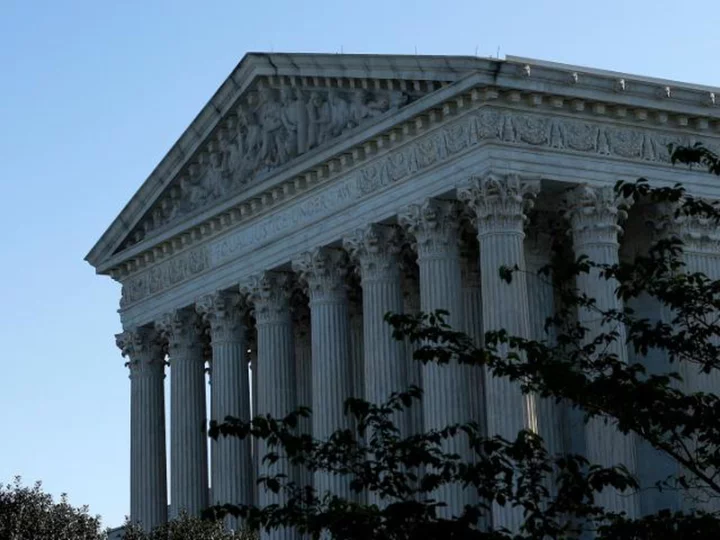Americans' approval of the Supreme Court has fallen since the start of the year, according to a new poll released Wednesday, with 41% of the country saying it approves of the nine justices amid a barrage of media reports and watchdog complaints concerning ethics and transparency at the nation's highest court.
The Marquette Law School poll provides fresh insight into how the public is reacting to a court that has become engulfed in controversy that, for the most part, is unrelated to its decisions in high-profile, politically fraught cases that typically shape the nation's view of the court.
Conducted between May 8 and May 18, the survey is the first to be completed by the school since ProPublica published an explosive report in early April about years of lavish trips and gifts Justice Clarence Thomas accepted from a GOP megadonor, the first in a series of stories concerning the conservative jurist's lack of transparency on his financial disclosure forms.
Since 2020, Marquette finds, approval of the court has frequently "oscillated" between surveys, but with declining high points in each cycle. The results of the new poll -- which found that 59% of US adults disapproved of the court -- are similar to those found in a July 2022 iteration of the survey taken days after the court overturned Roe v. Wade, but represent a downtick from more recent versions of the poll. In January, the same poll found that 47% of American approved of the court, while 53% disapproved.
Democrats and Republicans were deeply divided in their view of the court, according to the new poll, which found that the court had a 24% approval rating among Democrats and a 60% approval rating among Republicans.
Clarence Thomas
As for Thomas, the poll found that among people who pay attention to politics "most of the time," 60% had "heard a lot" about the justice's financial disclosure reports, while among those who pay attention to politics "less often," 18% had heard a lot about the reports.
Slightly over a third of the public overall, 35%, said they'd heard nothing at all about the story.
The ProPublica reports on Thomas' reports said that in addition to not disclosing the travel and gifts from Harlan Crow, he also did not disclose a 2014 real estate deal the justice made with Crow, a billionaire real estate magnate. The outlet also reported that Thomas did not disclose that Crow paid boarding school tuition for Thomas' grandnephew.
Thomas has said he followed the advice of others in deciding what required disclosure, and a source close to Thomas previously told CNN that the justice plans to amend his disclosure forms to reflect the real estate transaction -- an acknowledgment that the transaction should have been disclosed almost a decade ago.
Some watchdog groups have filed complaints over Thomas' nondisclosure, and the revelations have fueled fresh calls for the high court to adopt a formal ethics code.
Other justices have been in the spotlight, too, including conservative Neil Gorsuch. A nearly $2 million sale of property co-owned by the justice to a prominent law firm executive in 2017 also raised new questions about the lax ethics reporting requirements for members of the court.
And both Gorsuch and liberal Justice Sonia Sotomayor did not recuse themselves from cases that came before the court over the past decade involving a publishing company that's paid them in lucrative book deals, leading to more criticism at the high court.
It's likely that the dismal approval rating is also due to the court's decisions last year in a number of controversial cases, especially the one reversing Roe.
The court hasn't yet issued opinions in most of the high-profile cases it heard this term, including ones concerning affirmative action, LGBTQ rights and the Biden administration's student debt relief plan.
Results from the survey are based on interviews with 1,010 adults nationwide and have a margin of sampling error of plus or minus 3.7 percentage points.

